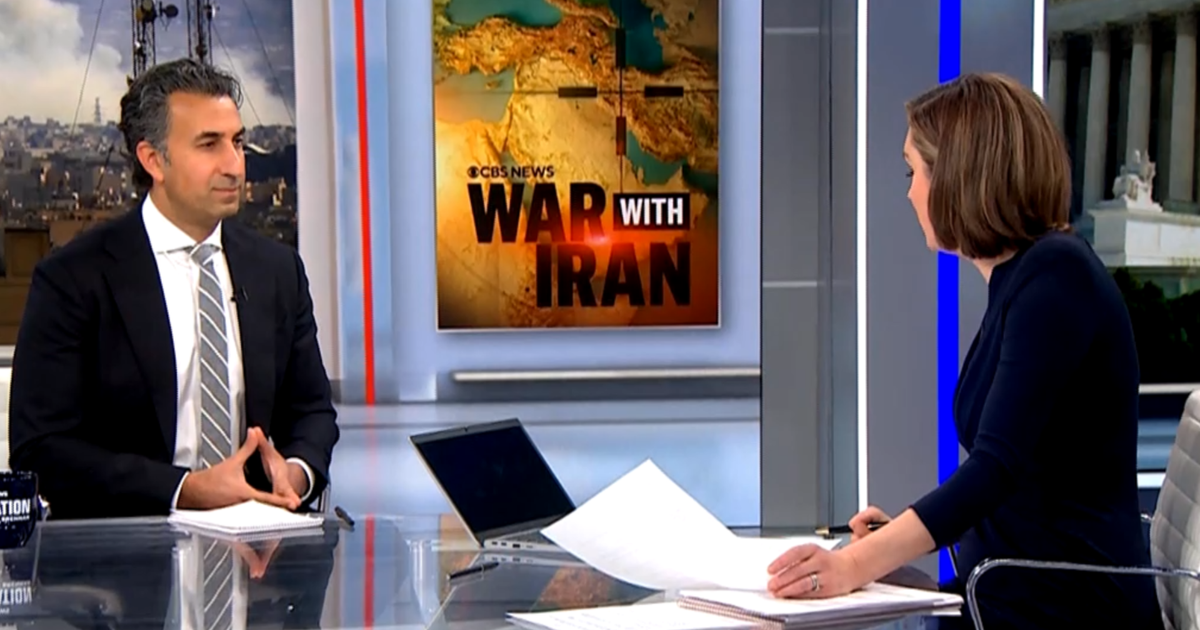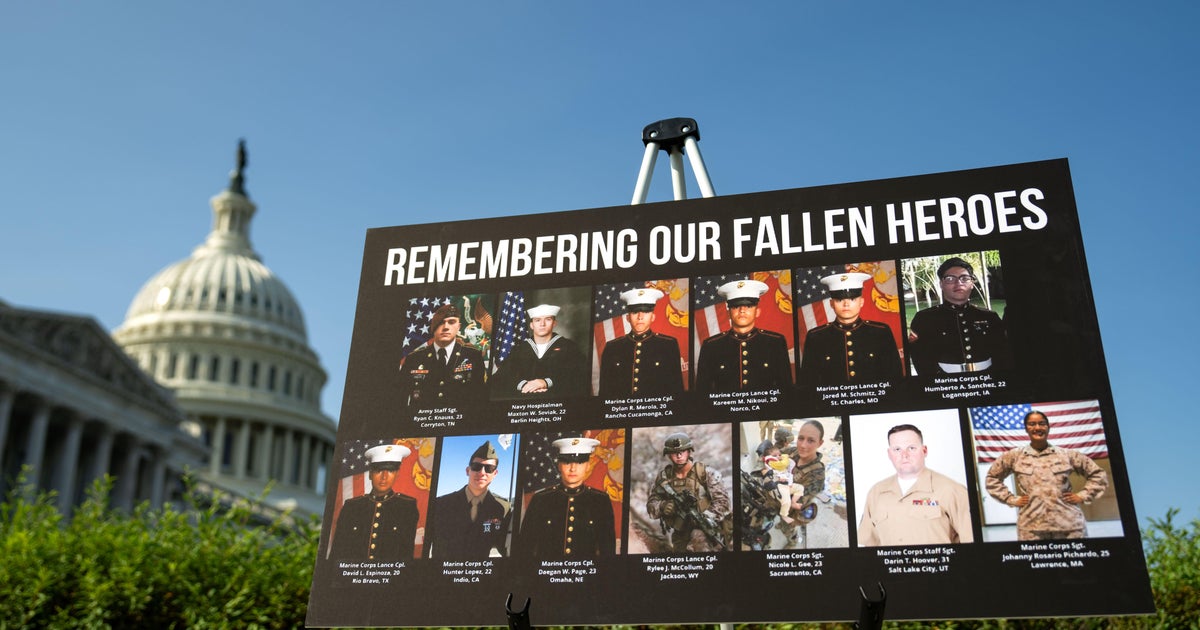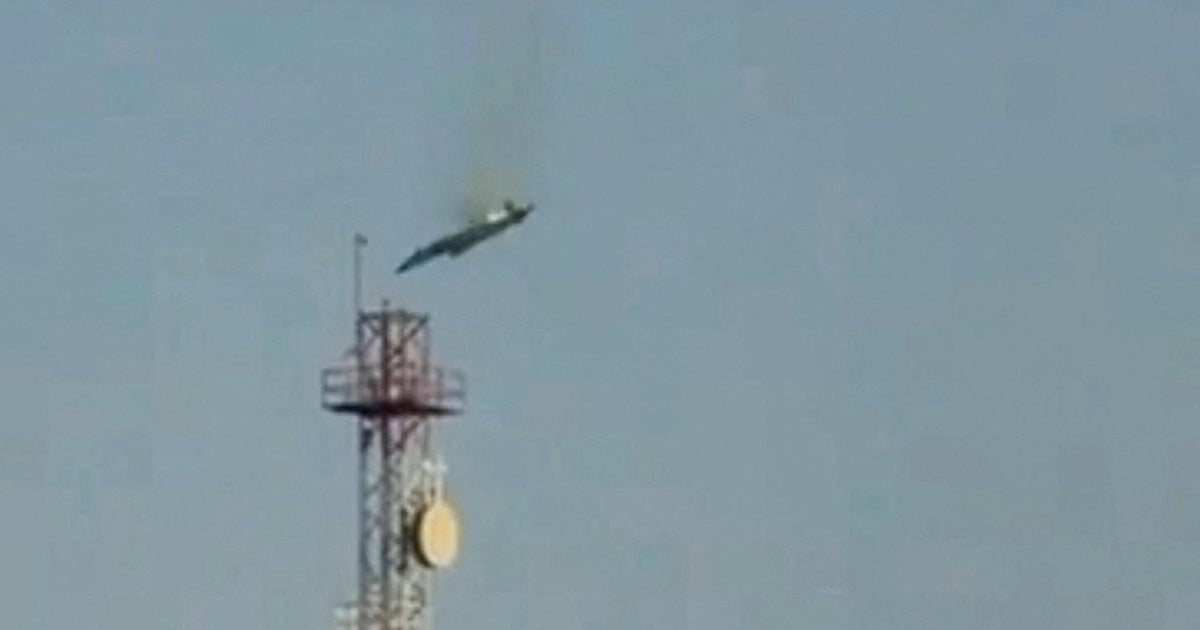Transcript: Sue Gordon on "Face the Nation," September 5, 2021
The following is a transcript of an interview with Sue Gordon, former deputy director of national intelligence, that aired on Sunday, September 5, 2021, on "Face the Nation."
WEIJIA JIANG: Here with us now is Sue Gordon, former principal deputy director of National Intelligence. Good morning, Sue. It's so great to see you.
FORMER PRINCIPAL DEPUTY DIRECTOR OF NATIONAL INTELLIGENCE SUE GORDON: Good morning. Great to see you as well.
WEIJIA JIANG: As we heard from Charlie, there are still Americans and Afghan allies who are trying to get out. And one of the challenges is the ongoing threat from ISIS-K. The Biden administration has repeatedly said that their ability to carry out an attack like the one we saw at the airport is very different from their capability of striking the homeland. Is that true?
GORDON: It is. I think one of the things to understand is the 20 years of our counterterrorism efforts, including that time in Afghanistan, has seriously degraded the ability of extremist forces to rally, gather their resources, and then to operate at a distance. That does not mean that they can't create havoc within Afghanistan, disrupt the formation of any new kind of government, and over time reconstitute themselves in a way that could be problematic for us.
WEIJIA JIANG: So, 20 years later, can you answer if we are safer or not?
GORDON: Oh, I think from a counterterrorism perspective, we are decidedly safer. We have collectively, with the help of allies and partners, waged great effort to disrupt the networks, to take away the geography and to improve our efforts to detect things going on. That doesn't mean that holds forever if you don't continue to invest, and now in the partnerships that are going to do the work in a region where we've decided to step away.
WEIJIA JIANG: But the president's critics have said that this withdrawal has set the stage for another 9/11 attack. Do you share any concerns that terrorists will use Afghanistan once again as a hub to breed more capacity?
GORDON: Yeah, I think you have to be concerned about that, almost no matter what government the Taliban is able to put into effect, they- they aren't a government in the way we think about it in terms of absolute control. Remember, they're the extremists that we went in originally to fight. So, it is a fraught area where you have tribal and- and extremist influences. So, it's worrisome. I think the Biden administration now, when present, isn't the advantage we have when intelligence isn't going to be as good, because you don't have that presence, really going to have to double down on the regional partnerships and you're going to have to rely on. Non-traditional partners like Russia and China and Pakistan to really do that work in the region to try and influence the stability that is necessary to keep that threat from reemerging.
WEIJIA JIANG: You just said the intelligence not being as good. President Biden has insisted that the over the horizon capabilities are enough to monitor these threats. But I wonder if you think that's true and what we miss out on by not being on the ground.
GORDON: So truth in advertising. I have, over the course of my career, have seen this nation develop amazing capability to discover information that we needed to have that we typically didn't have access to. But especially in remote regions where the data you want is not held in neat server rooms and physical presence allows you to the humans that have the information. You get a little- a considerable amount from the interaction with those humans, the information they have and the intention that comes with human intelligence. So, I'm not going to say that we can't develop over the rising capabilities that are expanding on what we have today. But I will say that intelligence with presence is really important as well.
WEIJIA JIANG: I want to turn to the intelligence that we may have had before the chaotic withdrawal. Reuters published a report that- that includes excerpts of a phone call between President Biden and the former president of Afghanistan, Ashraf Ghani, dated on July 23rd. So, three weeks before the takeover, the president reportedly said, "as you know and I need not tell you the perception around the world and in parts of Afghanistan, I believe, is that things aren't going well in terms of the fight against the Taliban. And there's a need, whether it's true or not, there is a need to project a different picture." The president is, reportedly characterizing this threat as a perception when clearly it was also the reality on the ground. Was that a failure in intelligence?
GORDON: I think any time lives are lost and if you look at our withdrawal, there is a collective responsibility between the policy, operational intelligence communities for that outcome. I would not characterize this as an intelligence failure for a couple of reasons. Number one is, I think of our 20-year history involvement. The intelligence community has been pretty clear eyed in terms of what the on the ground situation was and what the likelihood of persistence of the government if the US withdrew. Now, I think you have to acknowledge that they apparently didn't have precision in their estimate on the speed of the loss.
WEIJIA JIANG: I want to- I'm glad you mentioned that, because later on in that same conversation, President Ghani said, "Mr. President, we are facing a full-scale invasion composed of Taliban, full Pakistani planning and logistical support." That does not match what he has publicly said, which is we had no idea the collapse was going to happen so fast. Is this another example of the president's claims changing the perception from the reality?
GORDON: Yeah, I think a couple of things are clear to me with the caveat that I don't know what other conversations were had and I wasn't in the room when decisions were made. It seems clear from that conversation that he understood that the situation was fraught, that at least we could have foreseen the outcome, if not the speed. I stopped short of- of having a problem with him telling Ghani that he needed to project strength. Right? Regardless of what the situation was, it is probably a reasonable comment that he needed to project strength. But it seems clear from that conversation that he knew the situation was fraught. And so I think his challenge is going to be how he speaks to the American people as more and more of these facts become evident.
WEIJIA JIANG: Sue, I could talk to you for another hour, but we are out of time. So, thank you so much for joining us this morning. We'll be right back in a moment.



